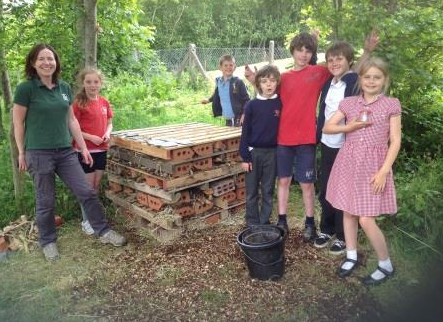
Since 2015, greater horseshoe bats have been the focus of an initiative led by the conservation charity Devon Wildlife Trust. Known has the Devon Greater Horseshoe Bat Project, it has worked alongside communities across the county to help the struggling nocturnal mammal species which has seen its populations shrink in the UK by around 90% over the course of the 20th century.
From its outset, the project identified that a lack of knowledge about the lives of these secretive insect-eating animals was hindering efforts to help them. A prime objective of the project became a quest to discover more about where greater horseshoe bats live in Devon, the places they hibernate in winter, the roosts they raise their young in during summer and the pathways they use to find their feeding areas.
The project, which has been supported by the National Heritage Lottery Fund and a coalition of local partners solved this absence of information by launching an annual ‘Devon Bat Survey’, mobilizing an army of volunteers who used specialist bat recording equipment provided by the project to discover more about the species’ habits.
Over the five years of the project, a whopping 2,500 of these volunteer surveys were conducted in every corner of the county. These yielded more than 3.8 million bat records, each of them a recording of the sounds made by bats as they use echolocation to help them navigate their way around at night. As there are more than a dozen different bat species commonly found in Devon, the project team had to undertake the monumental task of sifting through these millions of records looking for those made by the all-important greater horseshoe bats.

